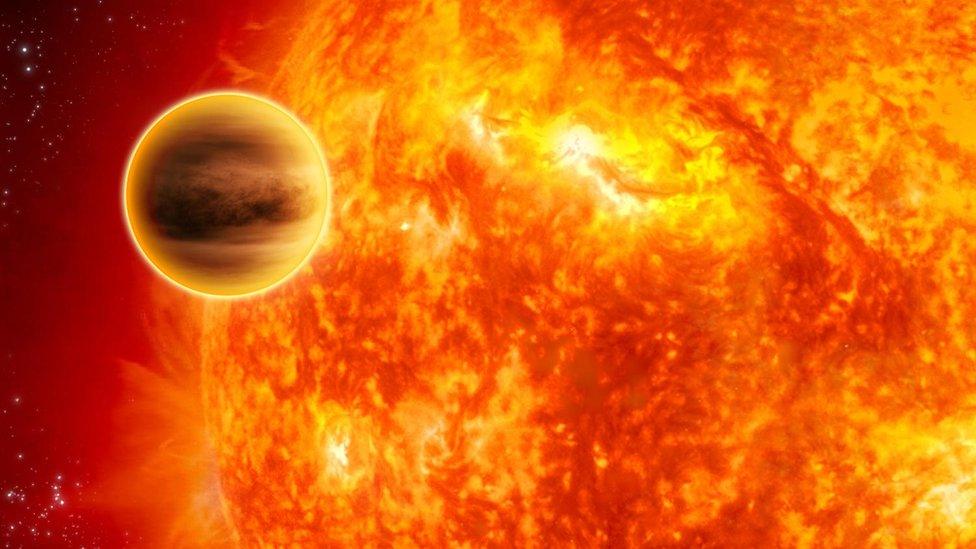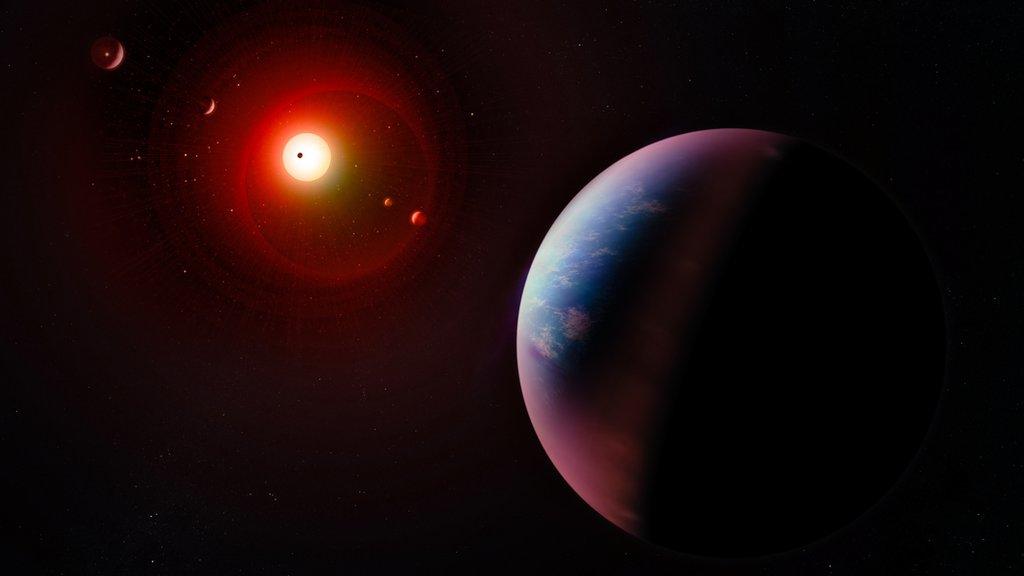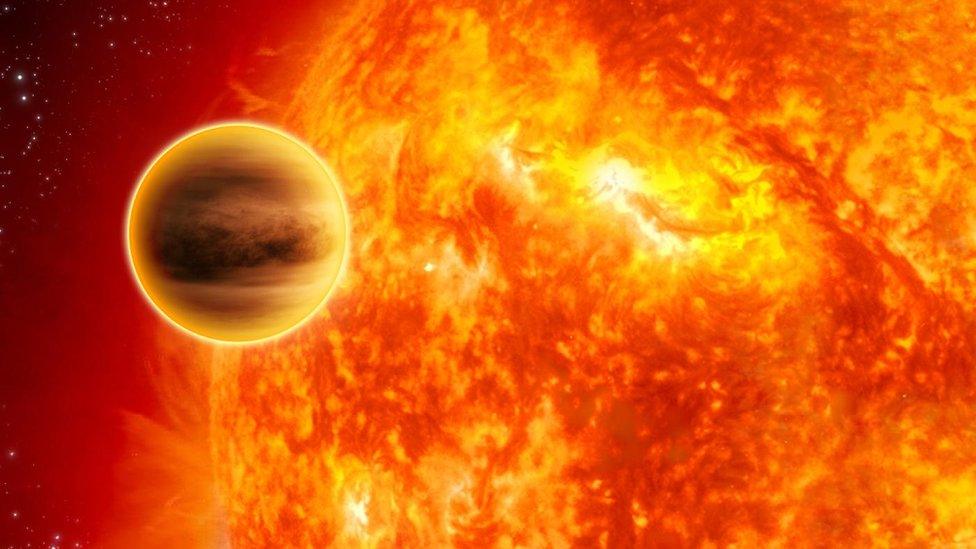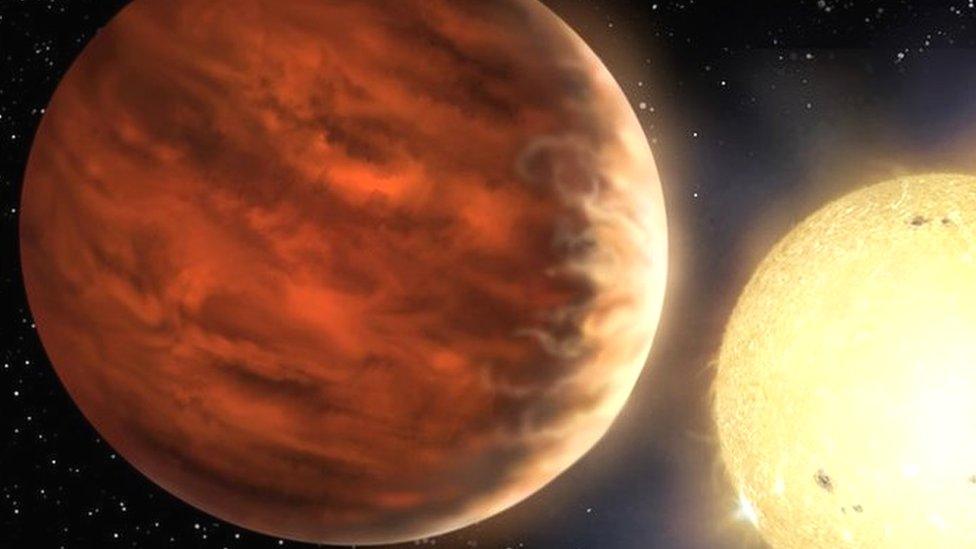Gloas and Cruinlagh: Planet and star become first with Manx names
- Published

An artist’s impression of an extrasolar planet similar to WASP-13b
A star and planet will be given Manx Gaelic names for the first time after being chosen in an international competition.
The star WASP-13 will be known as Gloas (which means 'to shine') and the planet WASP-13b as Cruinlagh ('to orbit').
A class of Manx eight and nine-year-olds came up with the names for a competition run by the International Astronomical Union (IAU).
Professor Robert Walsh said they had made their "mark on the universe".
The names were chosen due to their "sense of mystery" after taking 20% of 15,000 votes cast by members of the public.
Lily, one of the students at Cronk y Berry primary school, Douglas, said she was "flabbergasted" adding that she hoped to become an astronaut.
Their teacher, Tina Graham, said winning the public vote was "mind-blowing" and a "testimony to the creativity and talent" of the children.

Pupils at Cronk y Berry Primary School in Douglas submitted suggestions in Manx Gaelic
The naming competition was held by the IAU as part of a larger worldwide event to celebrate its 100th anniversary.
More than 110 countries were given an opportunity to name a star and an exoplanet (a planet outside of the solar system), with each winning entry being recognised internationally.
WASP-13, a star within the Lynx constellation that was first observed in 1997, is 1.5 times bigger than the Sun and is visible with the naked eye from the British Isles.
WASP-13b, which was discovered in 2009, orbits the star every four days and is bigger than Jupiter, the largest planet in the Solar System.
- Published20 November 2019

- Published19 November 2019

- Published9 September 2019
